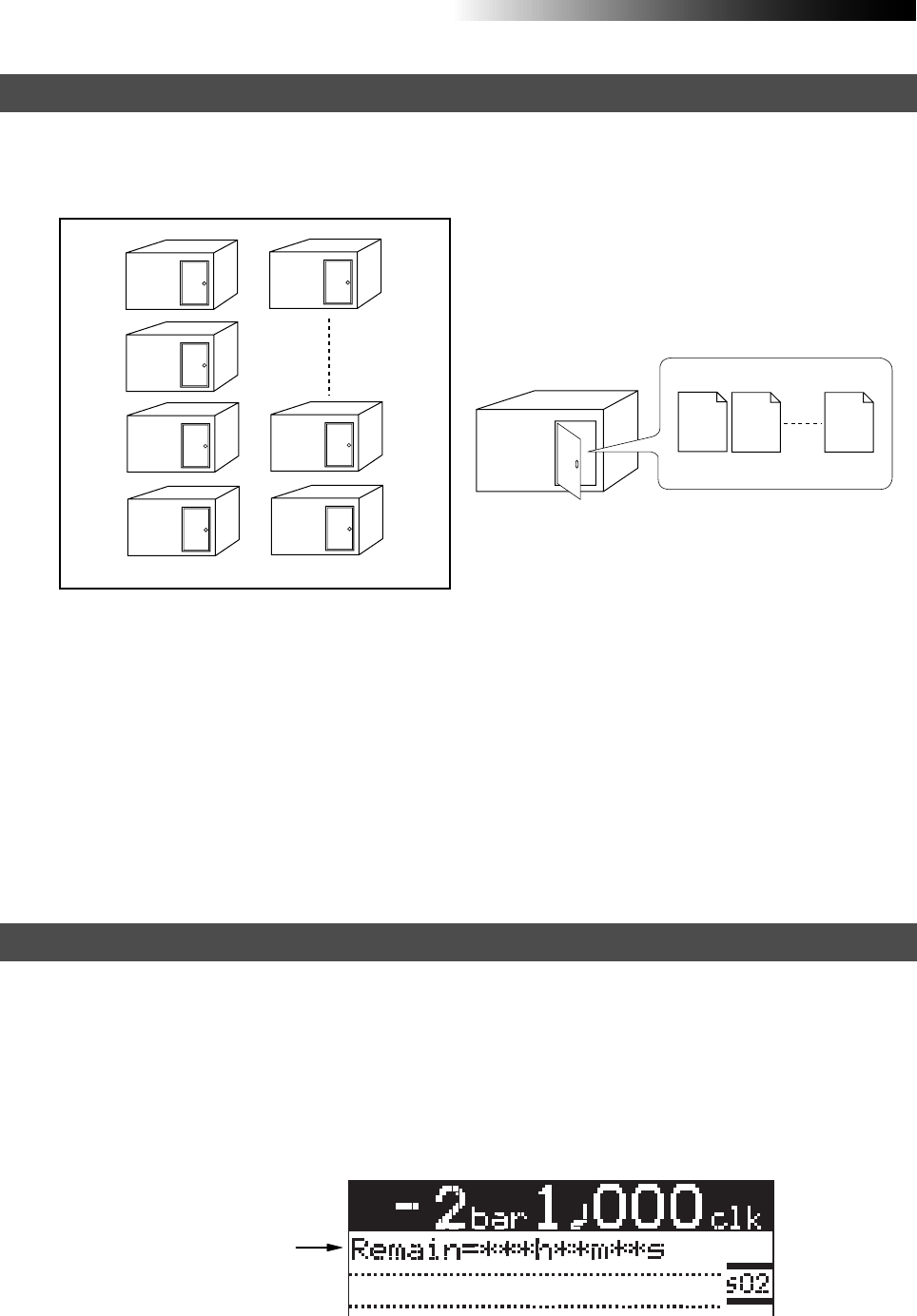
14
MR16 Owner’s Manual (Read this chapter first!)
About song
To understand songs, imagine separated rooms as shown below. Each room can be regarded as
a song. With the MR16, you can create up to 99 rooms (songs) on the hard disk (although the
available space may limit the number of songs).
Recorded track data is stored in a song as mono WAV
files, as shown below.
Each song is independent on a disk and you can record, play back or edit a song without affect-
ing other songs. You can give a desired song name for managing recorded songs (see page **).
Recorded track data is stored in a song as mono WAV files.
The MR16 can convert the two WAV files recorded on tracks 15 and 16 (L and R) to a stereo WAV
file (see page 90).
You can burn the converted stereo WAV file to an audio CD. To do this, export the file to your PC
and burn it using a music software application (see page 104), or burn the file to the internal CD-
R/RW drive (if it is provided to your MR16) or to an external CD-R/RW drive connected to the
MR16.
Song01
Track 1
Track 2
Track 16
Song01
Song02
Song03
Song04
Song05
Song99
Song98
Remain (recordable space left on the disk)
"Remain" shows how much time you can further record audio data to the available space left on
the internal hard disk.
As described earlier, the MR16 stripes ABS time from 0m 00s 000ms to 399m 59s 999ms at
maximum for each song. However, the remaining time (= available recording time left) depends
on the available space on the hard disk in actual use. The remaining time is shown as in the
screen example below during recording or record standby. Note that it shows the remaining
time for recording onto a mono track.
A "mono" track means a single track. Therefore, you can calculate the remaining time for record-
ing to more than one track by dividing the displayed time by the number of tracks. Note that the
remaining time shown on the screen is an approximate time.
Remain value
WAV files


















